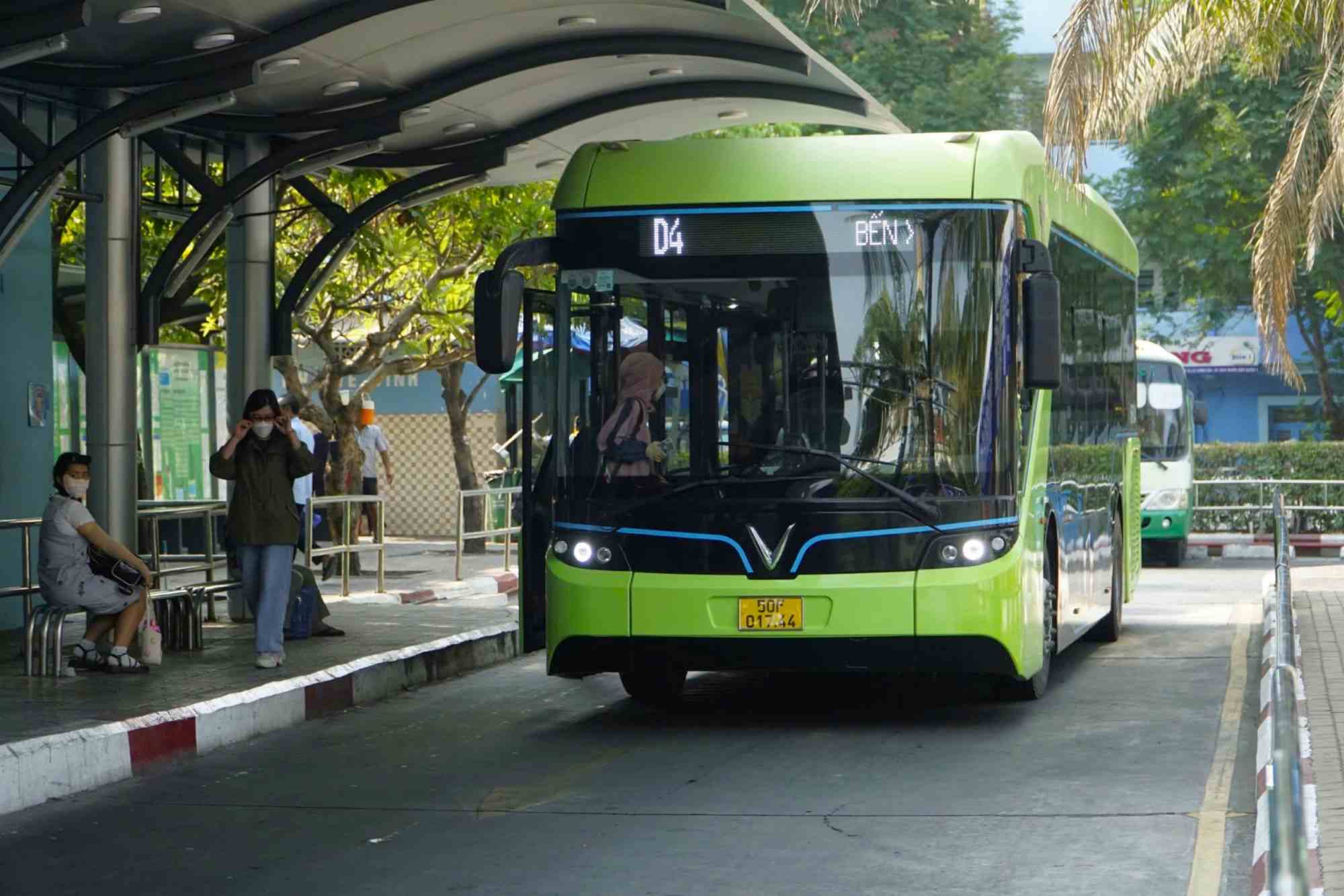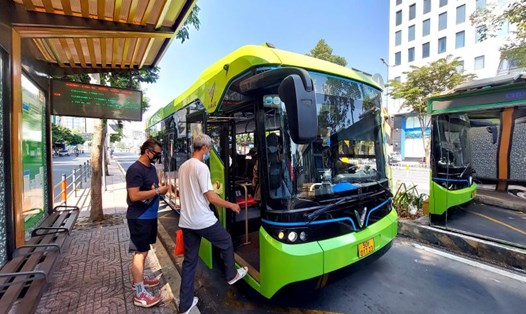Currently, Ho Chi Minh City has 138 bus routes, including 108 subsidized routes and 30 non-subsidized routes, with a total of about 2,221 vehicles.
Of these, 168 are electric buses and 528 are vehicles using compressed natural gas (CNG).
In the 2025 - 2030 period, the city plans to open 72 more bus routes, bringing the total number of routes to 210.
Since 2022, Ho Chi Minh City has begun piloting 5 electric bus routes. Up to now, route D4 (Vinhomes Grand Park - Saigon Bus Station) has been put into operation.
At the end of 2024, the city will continue to open 17 new electric bus routes to " cater" to Metro Line 1 (Ben Thanh - Suoi Tien), marking an important step forward in integrating types of public transport.
According to the Ho Chi Minh City Department of Transport, air pollution caused by traffic is becoming an increasingly serious problem in Ho Chi Minh City, especially in areas with high traffic density. Economic losses due to pollution are estimated at 10.8 - 13.2 billion USD per year.
The transition to electric buses is not only an inevitable trend but also an urgent solution to protect people's health and minimize economic losses.
In order to create a legal and economic foundation for the conversion process, the Ho Chi Minh City People's Committee has issued economic and technical norms for large-sized electric bus passenger transport services.
This is the basis for the city to organize bidding and select a suitable operator, accelerating the process of replacing diesel buses.

In addition, Resolution 98 of the National Assembly also allows Ho Chi Minh City to develop mechanisms and policies to encourage the use of green vehicles and control traffic emissions in key areas.
The Ho Chi Minh City Department of Transport has completed phase 1 of the project "Controlling vehicle emissions" and is submitting to the Ho Chi Minh City People's Council for approval of the conversion roadmap.
According to the plan, from 2025 to 2029, diesel buses that have been in operation for 15 years or more will gradually be replaced by electric vehicles or vehicles using green energy.
The route is that by 2027, there will be 32 bus routes with 572 diesel cars switching to electric cars; in 2028, there will be 21 more routes with nearly 400 cars; in 2029, there will be 19 routes with 268 cars. By 2030, the remaining routes will continue to be converted to 100% electric vehicles, green energy.
For non-subsidized bus routes (internal and inter-provincial), from 2025, all new routes or replacement vehicles must be electric vehicles.
In order to realize this roadmap, Ho Chi Minh City is also implementing a plan to build a network of charging stations. In the period of 2025 - 2030, bus stations and parking lots managed by state-owned enterprises will be invested in charging station infrastructure to meet the demand for bus conversion.
In addition, to attract businesses to participate in investing in electric buses, Ho Chi Minh City will apply many support policies such as preferential long-term loan interest rates when buying a vehicle, and supporting loans to invest in electric charging stations.











